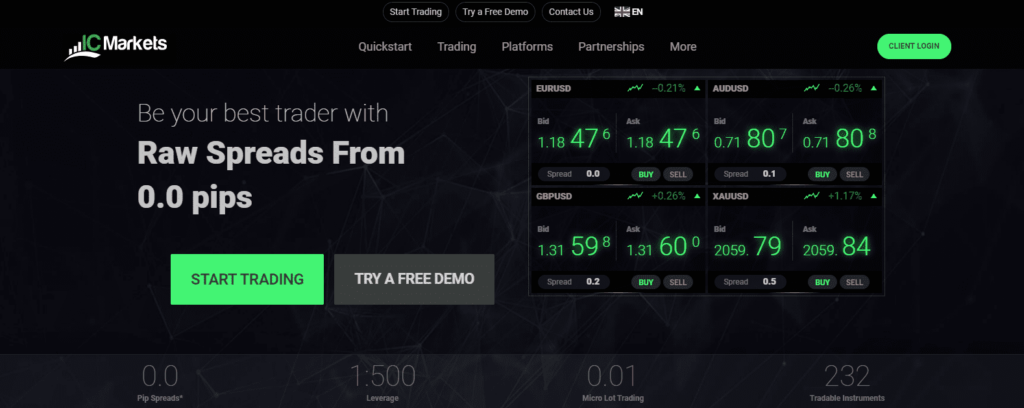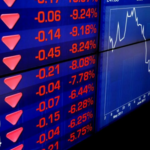Contents:

The prices set by market makers are a reflection of demand and supply. Stockbrokers can also perform the function of market makers at times. It, however, represents a conflict of interest because brokers may be incentivized to recommend securities that make the market to their clients. A market maker can either be a member firm of a securities exchange or be an individual market participant. Thus, they can do both – execute trades on behalf of other investors and make trades for themselves.

While there are certainly legitimate concerns about how markets have changed due to high-frequency trading, the only thing we can do is adapt. But because they make so many trades so quickly, the profits add up very quickly. The SOES system was just one of several technological innovations that were slowly eliminating floor traders, but its story is most emblematic of their downfall.

The prices of assets on an AMM automatically change depending on the demand. For example, a liquidity pool could hold ten million dollars of ETH and ten million dollars of USDC. A trader could then swap 500k dollars worth of their own USDC for ETH, which would raise the price of ETH on the AMM. Your results may differ materially from those expressed or utilized by Warrior Trading due to a number of factors. We do not track the typical results of our past or current customers. As a provider of educational courses, we do not have access to the personal trading accounts or brokerage statements of our customers.
Virtual Automated Market Makers (vAMM)
This reiterates that consistently making https://trading-market.org/ trading stocks is not easy. Day Trading is a high risk activity and can result in the loss of your entire investment. Market making is prevalent in currency exchange, where the participants tend to be banks and foreign exchange trading firms. In theory, an individual can also ‘make a market’, but the size of the investments needed is a huge hindrance. It takes enormous funds to be able to always stand at the ready to buy or sell.
Cryptocurrency Prominent Regulatory Update: Part 2 The Legal … – Law.com
Cryptocurrency Prominent Regulatory Update: Part 2 The Legal ….
Posted: Wed, 01 Mar 2023 17:54:05 GMT [source]
A https://forexaggregator.com/ maker is an individual or institution that buys and sells large amounts of a particular asset in order to facilitate liquidity. Securities Security is a type of financial instrument that holds value and can be traded between two… Investor An investor is someone who wants a greater return on their money than bank deposits can… Liquidity Every asset has a liquidity, from property to your collection of antiques and even the cash… A “market maker” is a firm that stands ready to buy or sell a stock at publicly quoted prices. Market makers in different markets and operating on different exchanges are subject to different rules regarding what they’re allowed to buy and sell and the types of trades they can make.
Market makers are highly capitalized traders who profit by providing liquidity to the rest of the market. Further complicating matters, the line between a bank and a brokerage isn’t always clear in crypto, where one firm can effectively be your bank, broker, exchange, lender, market maker and so on. So far, it’s amassed a catalog of Wall Street heavyweights as contributors, including speedy trading shop Hudson River Trading, market maker Virtu Financial, and stock exchange runner MEMX. Anyone can become a market maker/liquidity provider if they meet the requirements. The catch is that it’s practically impossible for a regular person to perform minimum trading functions. More commonly, only a large institution can sustain the required volume of trading.
A person or company who undertakes to quote at all times both a buy and a sell price for a financial instrument. They’re not exchanges in the traditional sense of listing companies, but they’re trading venues where you can send orders to transact with other traders. Modern-day market making is intensely competitive, requiring near-perfect execution of their algorithms. Floor traders used to fight over 12 cents, which was the tick-size, or the smallest price change in a stock. They aim to capture a piece of the “spread,” which is the difference between the best bid price and the best offered price. They’re ‘making the market’ by ensuring traders can always buy or sell, hence the name ‘market maker.’ Market makers come in many forms.
Full-Service Brokers
When they participate in the market for their own account, it is known as a principal trade. When a principal trade is made, it is done at the prices that are displayed at the exchange’s trading system. A bid-ask spread is the difference between the amounts of the ask price and bid price, respectively. In that day, brokerages would call in orders to the exchange and then specialists on the floor of the exchange would pair those orders with a willing counterparty.

An SEC presentation highlighted one example where market makers control the float of a company and then adjust prices arbitrarily to their own benefit as a type of market manipulation. However, the act of market making itself is fine as long as participants stay within the rules and regulations of the SEC and stock exchanges. The other big way market makers earn money is through taking on inventory. When there is a supply or demand imbalance in a stock, market makers will often accumulate a large position in an equity. When there is panic selling following a negative news announcement, for example, market makers are often the people buying as the crowd rushes to get out of the stock. Once things calm down, the market maker can slowly unload the inventory at more favorable prices, earning a profit for their willingness to absorb the risk during the panic selling.
Floor traders stood in large trading ‘pits,’ where they used their own hand signals and jargon to communicate with each other. Floor traders were rarely mathematical geniuses and instead honed market intuition through social cues from other traders in the pit and back-of-the-napkin calculations. You’d call your broker to place an order, and your broker would send one of their staffers down to the trading pit to hand the ticket to a trader. Ken Griffin is founder, chief executive officer and 85% owner of the hedge fund Citadel—the largest market maker in the United States. Market makers enhance their service by providing flexibility in certain areas. In particular, they can offer non-standard settlement dates and the opportunity to settle in multiple currencies.
Options Market Makers
Let’s jump right into an example to see how market makers help markets run smoothly. If you’ve ever placed a market order before, you’ve probably been surprised at how fast that order was filled. This is because a market maker was waiting, armed with a software-based trading system using algorithms, to take the other side of your trade.
- NASDAQ is a unique market organization that provides a competitive trading environment and efficient, low-cost execution of orders.
- Market makers are entities tasked with providing liquidity for a tradable asset on an exchange that may otherwise be illiquid.
- This is due to the fact that a substantial portion of AMM liquidity is available only when the pricing curve begins to turn exponential.
The market makers’ main goal is to buy at the bid and immediately sell at the offer . This is typically the case on smaller exchanges that don’t already assign DMMs to their listed issues. Every day traders like you and I aim to buy a stock and wait for it to go up. Market makers are more like a grocery store, buying at “wholesale” prices and passing them onto their customers for a slight premium.
Market maker definition
A bond broker is a broker who executes over-the-counter bond trades on behalf of investors . Market makers help to ensure there’s enough volume of trading so trades can be done seamlessly. ECN is an electronic system that matches buy and sell orders in the markets eliminating the need for a third party to facilitate those trades. Toronto is considered to be Canada’s financial capital, which is where the country’s leading stock exchange is located. The Toronto Stock Exchange , which is the country’s largest exchange, is owned by TMX Group. Market makers provide the market with liquidity and depth while profiting from the difference in the bid-ask spread.
How To Make Equal Partnerships Work. It’s Hard. – Forbes
How To Make Equal Partnerships Work. It’s Hard..
Posted: Tue, 07 Feb 2023 08:00:00 GMT [source]
Market makers encourage market liquidity by standing ready to buy and sell securities at any time of day. A broker is an individual or firm that charges a fee or commission for executing buy and sell orders submitted by an investor. Sometimes a market maker is also a broker, which can create an incentive for a broker to recommend securities for which the firm also makes a market. Investors should thus perform due diligence to make sure that there is a clear separation between a broker and a market maker. A specialist was a term formerly used to describe a member of an exchange who acted as the market maker to facilitate the trading of a given stock.
Recommended Articles
A number of market makers operate and compete with each other within securities exchanges to attract the business of investors through setting the most competitive bid and ask offers. In some cases, exchanges like the NYSE use a specialist system where a specialist is the sole market maker who makes all the bids and asks that are visible to the market. A specialist process is conducted to ensure that all marketable trades are executed at a fair price in a timely manner.
It means that they want to buy 100 shares for the price of $5 while simultaneously offering to sell 200 shares of the same security for the price of $5.50. The offer to buy is known as the bid, while the latter offer to sell is the ask. There are no revolutionary features for Apple’s mainstay products and traders lose interest in the story. Now there’s a rush to sell Apple shares, with few people willing to buy.

Needs to review the https://forexarena.net/ of your connection before proceeding. I started with the Kaplan study guide -read 3 chapters and fell asleep. I searched online for exam simulators like the ones I used for my IT certifications and came across the Solomon Exam Simulator.
- The function of a market maker is to provide liquidity for the markets.
- Legally, market makers cannot cooperate when planning and executing their trades.
- Becoming an experienced trader takes hard work, dedication and a significant amount of time.
- The information in this site does not contain investment advice or an investment recommendation, or an offer of or solicitation for transaction in any financial instrument.
Market makers typically work for large brokerage houses that profit off of the difference between the bid and ask spread. The term market maker refers to a firm or individual who actively quotes two-sided markets in a particular security by providing bids and offers along with the market size of each. Market makers provide liquidity and depth to markets and profit from the difference in the bid-ask spread.
Most of us have heard the assumption that the market is manipulated by some power driving prices in whatever direction they need. However, blaming all losses on shadowy puppeteers can quickly become detrimental. Market makers have the expertise needed to analyse assets, and their activity can help indicate whether it’s worth investing in.







